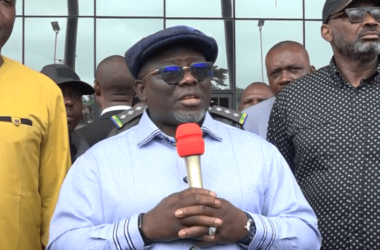Former Presidential spokesperson Laolu Akande has described the Supreme Court’s recent verdict on local government financial autonomy as a watershed event in Nigerian local administration. During the My Take segment of Inside Sources with Laolu Akande on Channels TV, Akande highlighted the ruling as a critical opportunity to revitalize grassroots governance and improve community services.
According to Akande, the Supreme Court’s decision represents a critical turning point for local governments, which have long suffered under the weight of state governors who he claims have significantly diminished their roles and capabilities. “The emasculation of local government areas by state governors has contributed to widespread poverty, with inadequate healthcare systems, poor educational structures, and deteriorating infrastructure,” he said. “The Supreme Court’s judgment provides a much-needed reprieve and a chance to rejuvenate the grassroots.”
Akande emphasized that the ruling should be leveraged to restore essential services such as healthcare and education at the local level. “This is an opportunity to breathe life into local governments once more, to reinvigorate our primary healthcare services, and to enhance primary education,” he stated. However, he cautioned against the risk of new forms of local government emasculation. “We must ensure that this financial autonomy does not simply replace the old ’emperor-like’ governors with similarly overbearing local council chairpersons. This moment calls for good governance, transparency, and accountability.”
He underscored the need for local government chairpersons and councilors to seize this chance for meaningful change, highlighting the importance of prompt payment of salaries and performance accountability. Unlike state governors, local government officials are not protected by immunity clauses, making them more accountable to the electorate.
Akande also noted that while financial autonomy is a significant step forward, it alone cannot guarantee development at the grassroots level. “We will need capable, competent, and character-driven individuals to manage these funds effectively,” he said. He drew parallels with historical successes in Nigeria’s federal structure, citing the achievements of the old Western Region under leaders like Chief Obafemi Awolowo, who implemented free education and healthcare.
Reflecting on the First Republic, Akande praised the Kano Native Authority’s management, which once provided a loan to the Northern Regional government. “This is the kind of local government efficacy we can aspire to achieve again,” he remarked.
Akande expressed gratitude to the Supreme Court justices, President Bola Tinubu for his leadership, and Chief Lateef Fagbemi, SAN, for his role in advancing the case. “This ruling has set the stage for a turnaround in local governance,” he said. “We are evolving our own federal structure. It is now up to the new local government structure with financial autonomy to become centers of development. Therefore, let us ensure that credible elections are held to realize this potential.”
In addressing critics who view this development through a purely ideological lens, Akande stated, “Nigeria is evolving its own brand of federalism. We are no ideologues but pragmatists seeking effective governance.” He emphasized that the focus should be on practical outcomes and tangible improvements in local governance rather than rigid adherence to any particular political theory.










